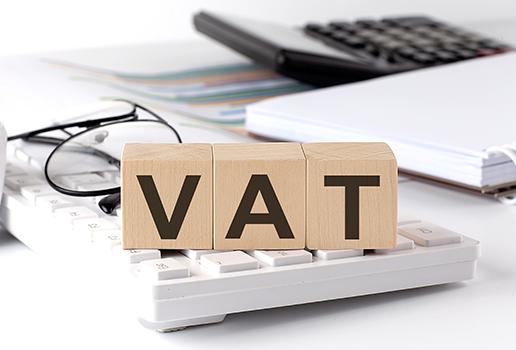The UAE has issued Cabinet Decision No. 129 of 2025, introducing wide-ranging updates to the administrative penalties that apply under Cabinet Decision No. 40 of 2017. These amendments are effective from 14 April 2026 sand create a more streamlined, unified penalty structure across Corporate Tax, Value Added Tax (VAT), and Excise Tax, under the umbrella of the Tax Procedures Law.
For businesses operating in the UAE, the revised penalty regime brings both relief in the form of reduced penalties in certain areas, and increased responsibility through clearer expectations for governance, documentation, and timely compliance.
As a leading tax and compliance advisory firm, Integrity Accounting Services (IAS) is committed to helping clients adapt to these changes and maintain full compliance as the regulatory environment evolves.

Administrative penalties are financial fines imposed by the Federal Tax Authority (FTA) when a business fails to comply with obligations under the UAE tax laws. These obligations range from maintaining proper accounting records and submitting returns on time to paying tax liabilities, updating registration details, and responding to audit requests.
Although these penalties are not criminal in nature, they can be substantial, particularly those that accumulate monthly, such as late payment penalties or penalties for incorrect returns that are corrected through voluntary disclosure. The penalty structure is designed to encourage accurate reporting, timely submissions, and strong documentation practices across all businesses.
The financial impact of penalties can be significant. Even a simple oversight, such as a late VAT return or a missed update to the company’s registered address, can result in monetary penalties that quickly escalate if repeated or left unaddressed. Businesses with inadequate record-keeping systems may face multiple violations during an audit, each resulting in separate penalties.
Beyond the financial impact, penalties can influence a company’s operational efficiency and reputation. Frequent penalties can lead to increased scrutiny from the FTA, putting the business at greater risk of audits. They can also raise concerns with auditors, investors, and financial institutions, affecting the company’s overall credibility. Ensuring compliance is therefore not only a regulatory requirement but also a strategic business priority.
The table below outlines the most notable changes introduced under the new Cabinet Decision:
| Area | Previous Penalty Framework | New Penalty Framework (2026) | Impact |
|---|---|---|---|
| Record Keeping | AED 10,000 for first violation; AED 20,000 for repeated violations | AED 1,000 per violation; AED 20,000 for repeated violations within 24 months | Reduced initial penalties; focus on repeated non-compliance |
| Submission of Arabic Records | AED 20,000 | AED 5,000 | Major reduction |
| Updating Tax Records | AED 5,000 for first; AED 10,000 repeated | AED 1,000 per violation; AED 5,000 repeated | More proportionate |
| Legal Representative Notification | AED 10,000 | AED 1,000 | Significant reduction |
| Late Payment Penalty | 2% after due date + 4% monthly | 14% annually, calculated monthly | Clearer, generally lower |
| Incorrect Tax Return | AED 1,000 or AED 2,000; or penalty equal to tax difference | AED 500 (if no tax difference) | Simpler and more predictable |
| Voluntary Disclosure Penalty | 5%–40% | 1% per month on the tax difference | Time-based, fairer |
| Failure to Voluntarily Disclose Before Audit | 50% + 4% monthly | 15% fixed + 1% monthly | Much lower exposure |
| VAT & Excise Penalties | Unchanged | Reproduced without changes | Minimal shifts in these areas |
Source: Cabinet Decision No. 108 of 2021 and Cabinet Decision No. 129 of 2025.
To help businesses understand the practical implications of the updated penalty framework, below are real client-style scenarios based on common compliance issues in the UAE.
Case Study 1: Late Payment of Corporate Tax
A business with a Corporate Tax liability of AED 200,000 misses the payment deadline due to an internal system upgrade. Under the new regime, the late payment penalty accrues at 14 percent annually, calculated monthly.
This results in a monthly penalty of approximately 1.166 percent, totalling AED 9,328 for a four-month delay.
While lower than the previous penalty model, this amount remains financially significant and demonstrates why timely preparation and payment of Corporate Tax liabilities is essential.
Case Study 2: Voluntary Disclosure Submitted After Several Months
During a VAT health check, a business identifies that it incorrectly claimed AED 50,000 of input VAT.
If the voluntary disclosure is submitted eight months after the return’s due date, the penalty is 1 percent per month on the tax difference, resulting in AED 4,000 in penalties.
Had the business acted promptly and submitted the disclosure earlier, this cost could have been substantially reduced.
Case Study 3: Record-Keeping Violations Detected During Audit
An FTA audit of a trading company identifies missing supplier invoices, incomplete bank reconciliations, and gaps in inventory movements.
Under the new rules, the penalty is AED 1,000 per violation, rising to AED 20,000 for repeated violations within 24 months.
Although individual penalties appear small, multiple missing documents can quickly add up. This highlights why strong documentation governance must be a priority.
If a business receives a penalty that it believes was applied incorrectly, it has the right to submit a Reconsideration Request to the Federal Tax Authority. This is an important avenue for challenging penalties; however, it is subject to strict rules.
The most important requirement is timing: a reconsideration must be submitted within 40 business days from the date the penalty was issued. Missing this deadline removes the possibility of having the penalty reviewed, regardless of its merits.
Reconsiderations should be supported by clear evidence and a concise, legally grounded explanation of why the penalty should be withdrawn or amended. Businesses must avoid emotional arguments and instead focus on factual and regulatory reasoning. IAS can prepare and submit reconsiderations on your behalf, ensuring that all supporting documents, justification letters, and legal arguments are aligned with FTA requirements.
At Integrity Accounting Services (IAS), we take a preventive, governance-driven approach to tax compliance. Our goal is not only to resolve penalties but to help businesses avoid them entirely.
We offer comprehensive compliance support, including:
1. Monthly or Quarterly Compliance Oversight
IAS supervises your VAT, Corporate Tax, and Excise compliance throughout the year to ensure timely submissions and accurate reporting.
2. Tax Health Checks
We conduct detailed reviews of documentation, filings, and accounting systems to identify risks before they lead to penalties.
3. Voluntary Disclosure Planning
IAS advises on whether a disclosure is required, when it should be filed, and how to reduce penalty exposure through timely action.
4. Support With Penalty Reconsiderations and Objections
Where penalties arise, IAS prepares and files reconsiderations within the mandatory 40-day deadline and can support further escalation where needed.
5. Staff Training and Documentation Frameworks
We equip finance teams with the tools, knowledge, and internal controls needed for long-term compliance.
IAS’s structured approach helps businesses minimise risk, reduce costs, and maintain strong governance standards in line with FTA expectations.
The amendments under Cabinet Decision No. 129 of 2025 reflect the UAE’s commitment to a transparent, proportionate, and well-regulated tax environment. While some penalties have been reduced, the focus on accurate reporting, timely compliance, and robust record-keeping is stronger than ever.
By understanding the new penalty framework and implementing strong internal controls, businesses can avoid costly fines and maintain a solid compliance record.
IAS is here to guide you through every stage of tax compliance, from prevention to reconsiderations. For tailored support, advisory services, or a compliance health check, please contact our tax team.











